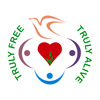The Christian Brothers, India
PRINCIPLES OF FORMATION
PRINCIPLES GOVERNING FORMATION
A Brother aligns his life with Jesus’ search for God and his mission to spread the Reign of God. To be a Brother is to engage with and be present to all people with humility, empathy and an open heart. The core of a Brother’s vocation is to live the Gospel radically through his search for God. Taking this “search for God” honestly and seriously is a particular gift a Brother offers the Church.
Formation of the Brothers requires each taking responsibility in seeking opportunities for personal, spiritual and ministerial development.
They will be encouraged to seek opportunities to “foster and develop other gifts and creatively seek new outlets for mission appropriate to their age and energy” (Constitution 65).
It is essential that young men entering into this process of preparation for a way of life and a mission that draws them into engagement with poor people have the necessary intellectual capacity to carry out their mission. They should also have experienced life to the extent that they have a good sense of their own personality, sexuality and relational style and show themselves to be responsible and strongly disposed to a life of service.
A mission that is going to draw Brothers into a deep and active engagement with poor people will need the solid foundation of personal prayer and time for quiet reflection. It is imperative therefore to provide the necessary skills that allow for theological reflection, and for the scriptures to occupy a place at the Centre of our lives. This initiative will encourage the nurturing of a contemplative stance on life, or what is called “mysticism in the marketplace”.
Brothers’ awareness of themselves and their capacity to address personal issues will enable them to deal with what may arise when working in close proximity with people in dislocating situations. It will create in them the need for, and appreciation of, personal counselling and spiritual direction as regular requirements of their lives.
It is essential that the Brothers are skilled, competent and confident in their mission and ministry. In addition, being professional entails having knowledge of professional ethics and boundaries, child protection policies and availing of supervision and regular evaluation.
Engaging with poor people as a disciple of Jesus demands an openness of mind and heart and a listening ear. Relating to people as Brothers requires an attitude of reverence, respect and trust.
Sharing our Spiritual Search
The community is the context for our shared spiritual search. This is the dynamic context for experiencing the Mystery we call God in the everyday realities of life. Following Jesus in the spirit of Edmund Rice is the desire of all members. The community will only be genuine if the members are open to being led to a deeper humanity.
We will share our personal and communal lives, including our deepening understanding of ourselves, of others, of Creation and of God. It also means that we share with one another what is happening in our relationships, especially what we are learning through our mutual friendship with poor people which connects us more deeply with our own vulnerability and humanity.
In living community life the Brothers nurture a presence which touches people’s spirits and a curiosity about the world that values mystery, transcendence and beauty.
Sharing the spiritual search involves personal and community spiritual practice. This will include meditation, daily prayer together, ritual celebrations, including Eucharist and Reconciliation, reflection on daily life and ministry experience, exploring together the New Universe Story. The community undertakes facilitation to help deal with community dynamics.
Our Catholic Christian tradition, which we seek to deepen, is the context for sharing our spiritual search. We are also open to the wisdom of other traditions as we embark on this journey.
Community Living
There are going to be challenges to living together that can provoke anger, frustration or hurt. An openness and acceptance of these emotions is necessary. Rituals of reconciliation and other methods of addressing difference are important and will have to be developed if the community is to grow and relationships deepen. Intensive preparation for this new kind of community living is essential, and facilitation will be needed at times once the community moves into its place of living.
For a community to be a joyful place, it must seek authenticity. Masks must drop and members must see and recognise the individuality and dignity of each person. This is at the heart of vowed living. “There is no place in such a community for silent, hidden suffering which can alienate and make us strangers to each other” (To Share Our Spiritual Search). Members must feel accepted, cherished and supported and seek to intimately share their lives together.
The presence of authentic Christian Brother communities that are joyful and have the necessary skills to develop more intimate relationships between members will be a witness in the wider community to what is integral to vowed living. The aspects of vowed living that will be visible will include: how Brothers engage in the spiritual search; how the community shares possessions and lives simply; how Brothers relate honestly with love for one another and reach out to those who are marginalised in society.
Religious carry a passion for Jesus’ stance of solidarity with those at the margins, including poor people, people who suffer gender discrimination and those whose participation in leadership and worship is restricted by hierarchical power structures. “Religious Life must be the thorn, the restlessness, the constant impetus, forbidding the Church to make its peace with the powers of the world” (Zechmeister, 2012). This stance brings Religious inevitably into conflict with the hierarchical Church and secular power structures.

